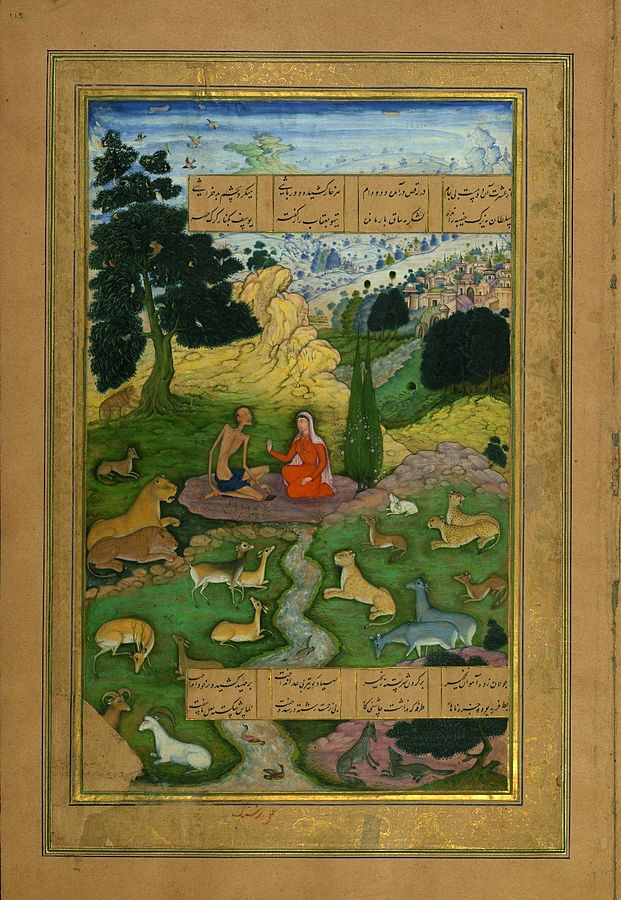FWP:
SETS == DIALOGUE;
HUMOR == TRANSLATABLES
DESERT: {3,1}
DOOMSDAY: {10,11}
Nazm reads the verse as expressing the beloved's refined, modest disapproval of Laila's wild, shameless behavior-- a well-bred lady doesn't go traipsing off alone into the desert, especially on such a dubious errand.
Bekhud Mohani maintains that the beloved disapproves of Laila's behavior because it's contrary to the proper standards and 'glory of belovedness'. It's unprofessional behavior, so to speak. To take trouble for one's lovers, to concern oneself with them-- what kind of unseemly sentimentality is this? The beloved should be imperious and disdainful. Laila should have known better!
Shadan, who so often rewrites Ghalib's verses to 'clarify' and simplify them, this time rewrites the verse into something all his own (and very problematical of course): he takes the vuh in the second line to refer to Majnun.
The range of interpretation reveals the versatility and evocativeness of one of Ghalib's favorite tools, inshaa))iyah speech, especially when it's interrogative and/or exclamatory.
The real charm of the verse, however, is surely the 'surprise' that the beloved shows. Not only does she herself routinely treat her lovers with disdain, not only do all the beloveds she knows of treat their lovers with disdain-- but it comes as a surprise to her that any other course of action is even conceivable. When she hears of Laila's loving behavior toward Majnun, she literally can't wrap her mind around it; she exclaims in sheer astonishment at such incomprehensible carryings-on. How perfectly expressed, and how genuinely funny! For another example of her radical unawareness of any such behavior, see {162,8}.
The lover's reaction to her surprise is expressed in the
cleverly versatile exclamation qiyaamat hai -- literally,
it's a Doomsday! This hyperbolic expression can convey amazement, wonder, horror, appalledness,
shock. All of which are appropriate to his hearing the beloved's exclamation--
and at once grasping the implications for his own future prospects.

Nazm:
That is, she expressed surprise at this deed of Laila's. And the meaning of her expressing surprise necessarily is that she considered it contrary to shame and modesty [sharm-o-;hayaa]. And from this deed's being considered contrary to modesty and propriety, the meaning is necessarily that she reproached Laila. And from her reproaching Laila it necessarily follows that she herself is prevented by shame and modesty from going to inquire about her lover. In short, in this verse the cause of eloquence [balaa;Gat] is this necessary sequence. The gist is that it's a disaster-- she is prevented by modesty [;hijaab] from even going to inquire about her lover. (110)
== Nazm page 110